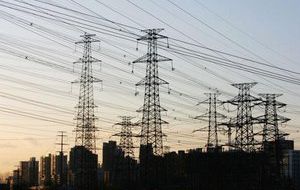MercoPress. South Atlantic News Agency
Argentina’s energy sector under “persistent productive decadence”
 “Argentina is clearly on the path to loosing energy self sufficiency”.
“Argentina is clearly on the path to loosing energy self sufficiency”. Since 2005 Argentina has consumed 25% of its natural gas reserves, 15% of oil reserves and the Mar Argentino (South Atlantic) which has “great possibilities remains virtually untouched”, reads a critical report on the outlook for the Argentine energy sector compiled by eight former Energy Secretaries from different governments.
The report triggered a strong controversy and a debate planned at the Engineering School of the country’s leading University of Buenos Aires had to be cancelled under strong pressure from the Cristina Fernandez de Kirchner administration.
Basically the Argentine energy sector is seen as facing serious structural problems, with no solutions on sight and insufficient investments. The “persistent productive decadence” and an “uncertain future” are evidence of a complete lack of long term policies for the sector.
The Mar Argentino (South Atlantic) untouched possibilities are attributed not to the global crisis, but because to the lack of investment.
The absence of “an institutional framework” means “no legal or political certainty conditions” to attract high risk investors.
The report also points out that exploration for hydrocarbons is down to a third compared with the nineties, and with oil and gas prices several times higher than at that time.
“Argentina is loosing its self supply capacity achieved in the eighties” and this contrary to what happens with agriculture where “two good crops running” can be enough, to recover energy capacity “can take 10 to 15 years”.
“Argentina is heading for a period of energy dependency with import prices setting domestic prices”, anticipated the report.
As can be imagined the Kirchner administration Federal Planning minister Julio De Vido rejected the contents of the report and claimed it “was clearly politically motivated and politicized”.
“These are the same guys responsible for driving Argentina to the cliff of an energy crisis in 2003, which was reverted by this government”, said De Vido.
Carlos Rosito, Dean of the Engineering School where the debate was programmed to take place argued that the School “is not an echo box for political or party stances” and cancelled the lease of the conference room.
When a Buenos Aires daily advanced some details of the report, “the debate turned political, it was going to be a political launching, the whole idea was miscarried” said Rosito who nevertheless admitted that the “Argentine energy system has long collapsed”.
“With a few weeks for mid term elections the purpose was to use the School to proselytise, and it is my job to prevent such things”, he emphasized.
However the experts say a copy was presented to Government House with the purpose of requesting a meeting with the Energy Secretary, “but it was to no avail; we never received a reply”
The report also claims lack of transparency in Argentina’s energy company Enarsa as well as in the regulators which should be filled with experts contracted through an open contest.
Argentina drilled in 2008 half the exploratory wells it did in 1988 and self supply is endangered. “The construction of power plants is delayed and there’s a lack of national energy plan”, insists the report.
The idea of the report was born last December during an energy conference organized by CARI, Argentine Council for International Relations, to which Energy Secretary Daniel Cameron was invited but never turned up.
Since several of the participants were former Energy secretaries and had a similar outlook on the situation it was decided to invite the fourteen secretaries since Argentina returned to democracy (1983) and write a report. Eight agreed.
Using official information the report shows that in 1988, a total of 103 exploratory wells were drilled; 75 in 1998 and 54 in 2008 when prices shot up from 12 US dollars a barrel (1998) to 94 US dollars last year, in constant OPEC basket prices.
“Argentina is clearly on the path to loosing energy self sufficiency”.
As to electricity, “the private sector lacks minimal conditions to invest and the State, when it acts through Enarsa it does so in a non planned way, most of the time appealing to the most costly urgency solutions”.
The whole policy is focused on the short term and “there are not enough investments, in quality and quantity to guarantee the supply of a growing domestic demand”.
Among the report’s suggestions are transparency, open bidding system and hierarchy for regulator bodies.
If social rates are to be applied they should not be used as “instruments to justify arbitrary actions” and information must be accessible to all citizens.
“It has become a classic to deny the existence of structural problems in the energy sector and hiding information at any cost. The lack of information transparency is unfair and non respectful of the community” concludes the controversial report.




Top Comments
Disclaimer & comment rulesCommenting for this story is now closed.
If you have a Facebook account, become a fan and comment on our Facebook Page!